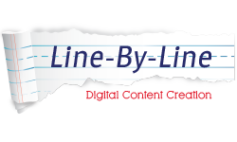The content we create for our businesses should provide knowledge, insights and resources to our audiences. And while we may know a lot about an extensive list of topics, none of us are experts at everything.
To ensure our content offers the most value to our readers – with current, specific and reliable information – we may, on occasion, need to interview a knowledgeable source.
What is a Source?
A source is an expert or professional in the area you are writing about. A source could be someone who has practical, real world or personal experiences, has earned a degree or recognition in a certain area, has donated or contributed to a cause or business, or is simply an interesting, knowledgeable person that you feel could add valuable insights and thoughts to your content.
Why Use a Source For Your Content?
Interviewing a source for your content can provide you with information you may not have on your own. Because your source is the “expert,” he or she can offer the following:
- Basic information on a topic that he or she knows a lot about, that you and your audience may not;
- Expert opinion on a subject matter or current trend;
- Insight based on his or her relative experience;
- Credibility to your content, because of your source’s experiences
How to Use Your Source’s Interview in Your Content
Depending on what type of content you are creating and how you want to create it, there are a few ways to use a source’s information:
- You could write a summary about the topic, and insert the facts and quotes from your source interview to support your claims;
- You could record your interview, and use it as a podcast or video for your website;
- You could write a blog post or newsletter article in a question/answer format, with a short introduction and conclusion paragraph.
10 Tips For Interviewing Your Source
Maybe you already have a source in mind for a particular piece of content. Or maybe you have to do a little research, reach out to some of your contacts, or check your LinkedIn groups to find one. Once you have an option or two you’d like to use as a source for your content, use the following tips to conduct a successful interview:
- Learn as much as you can about your source. Read his or her blog, study the website and follow what he or she is posting about on social media. Learn what he or she cares about and values.
- Make sure you thoroughly understand the goal and purpose of the content you’d like to create, and how the interview with your source will help you.
- Reach out to your possible source by phone, email or both. Explain who you are, why you are contacting him or her, and why you think he or she would make a great source for your article. Communicate your goals and purpose.
- Once your interview is scheduled, prepare a list of smart, interesting, open-ended questions. This will help you stay organized and make sure you obtain all of the information you need. Avoid questions that result in a yes or no answer. Start your questions with phrases like, “Tell me more about….” Or “What is your opinion of….”
- If you have the opportunity to talk with your source in person or by phone, ask if it is okay if you record the interview. This will help you with verifying quotes. Be sure to take notes anyway, just in case technology or batteries fail you in the middle of your interview.
- Interviews can be nerve wracking for some. Put your source’s mind at ease by providing a list of questions you will ask beforehand, being relaxed and open, and making small talk before the interview questions begin.
- If your source prefers to be interviewed by email, provide a list of questions he or she can respond to at a convenient time. Communicate your deadline, but be sure you are giving your source plenty of time to respond to your questions.
- At the conclusion of the interview, thank your source for his or her time and insights. Confirm the spelling of his or her name, company name and the definitions of any specific industry terms used during your interview that your audience may not know or understand.
- Let your source know approximately when your content will be published, and be sure to send him or her a link to the published content.
- Provide links to your source’s website, blog, email or social media accounts in your content. Promote the content on your social media outlets as well. This will help your source get more traffic to his or her website.
Sources can provide a new perspective and value to our content. Choose them wisely, be respectful of their time, and offer to return the favor. From your interview, your source has the opportunity to showcase his or her knowledge and experience. And you’ll benefit in the eyes of your readers for knowing and providing such a valuable resource.
Did you find this post helpful? If so, please join my email list:

